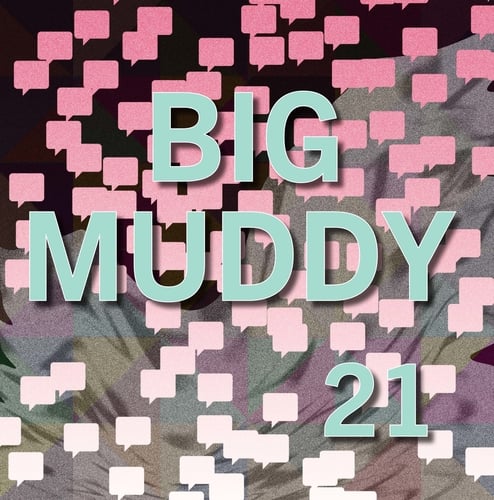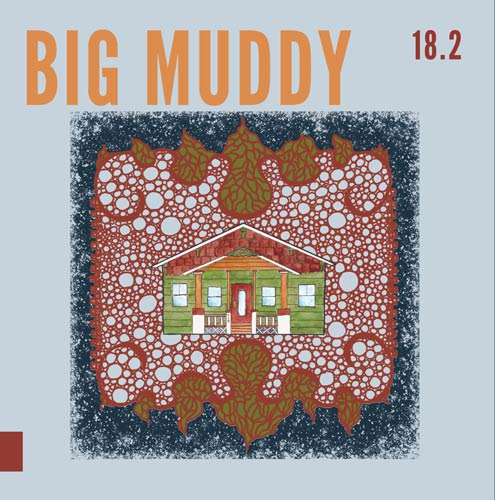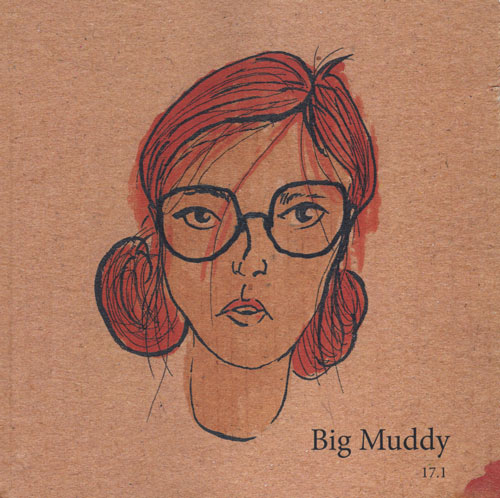Big Muddy – 2010
Volume 10 Issue 1
2010
Biannual
Molly Clasen
This journal reads like a road trip. Its rich landscape left me with a lingering sense of journey as I found characters and imagery replaying in my mind like saturated photographs.
This journal reads like a road trip. Its rich landscape left me with a lingering sense of journey as I found characters and imagery replaying in my mind like saturated photographs.
Kel Munger’s short story “Missus Finn,” winner of the 2010 Mighty River Short Story Contest, inspires excitement from the very first page as Huckleberry Finn’s abolitionist mother carries us back to Pre-Civil War Mississippi. Peppered with dialectical snippets like “bruised from crown to crotch,” and vivid details such as rubbing “pitch and dirt,” on slaves’ feet to hide their scent from slave hunters, “Missus Finn,” sublimely intertwines history and fiction in this suspenseful narrative.
Other stories similarly evoke a fierce sense of place and struggle. Robert Hamblin’s “Mammy” explores the mingling of guilt and love in a child’s house, while Elinor Davis takes us to a Post-World War II Midwestern suburb where a half-Jewish, half-Japanese girl grapples with identity. A particularly standout piece is True Faust’s “The Priest and the Honkytonk Angel,” in which Stephen, a Vietnam veteran pretending to be a priest, encounters an alluring and spiritually hungry woman at a bar. Rarely do I read philosophy and passion woven together with such tenderness, especially when Stephen laments how it’s “God’s cruel joke…to make people want life, want life so bad, and then to make it so fragile, to just take it away…in so many varied…creative ways.” Tragically, Faust’s husband published this after she passed away from cancer. No doubt it will remain a poignant glimpse into a bright mind taken too soon.
The poetry rhythmically connects these stories like heartbeats. Kathryn Kerr wrestles with life’s ephemeral nature in “The Trouble with Genealogy,” humorously quipping how in historical records, “A life is not worth a note / …unless you are murdered, / hanged, or lost at sea.” Most unusual is perhaps Kerr’s other poem, “Hill Woman’s Rant,” a terse plea to embrace nature and to “Let me live where no dead / deer heads protrude abruptly / from the wall” and “Let chain saws, lawn mowers, / and weed eaters be extinct.” Images from this ardent poem burned in my brain for weeks.
Next time you yearn to roll down your windows, hop in a car, and speed toward the sunset, I suggest letting Big Muddy feed your appetite for adventure. It’s a rowdy, profound ride and worth every second.
[www6.semo.edu/universitypress/bigmuddy]



